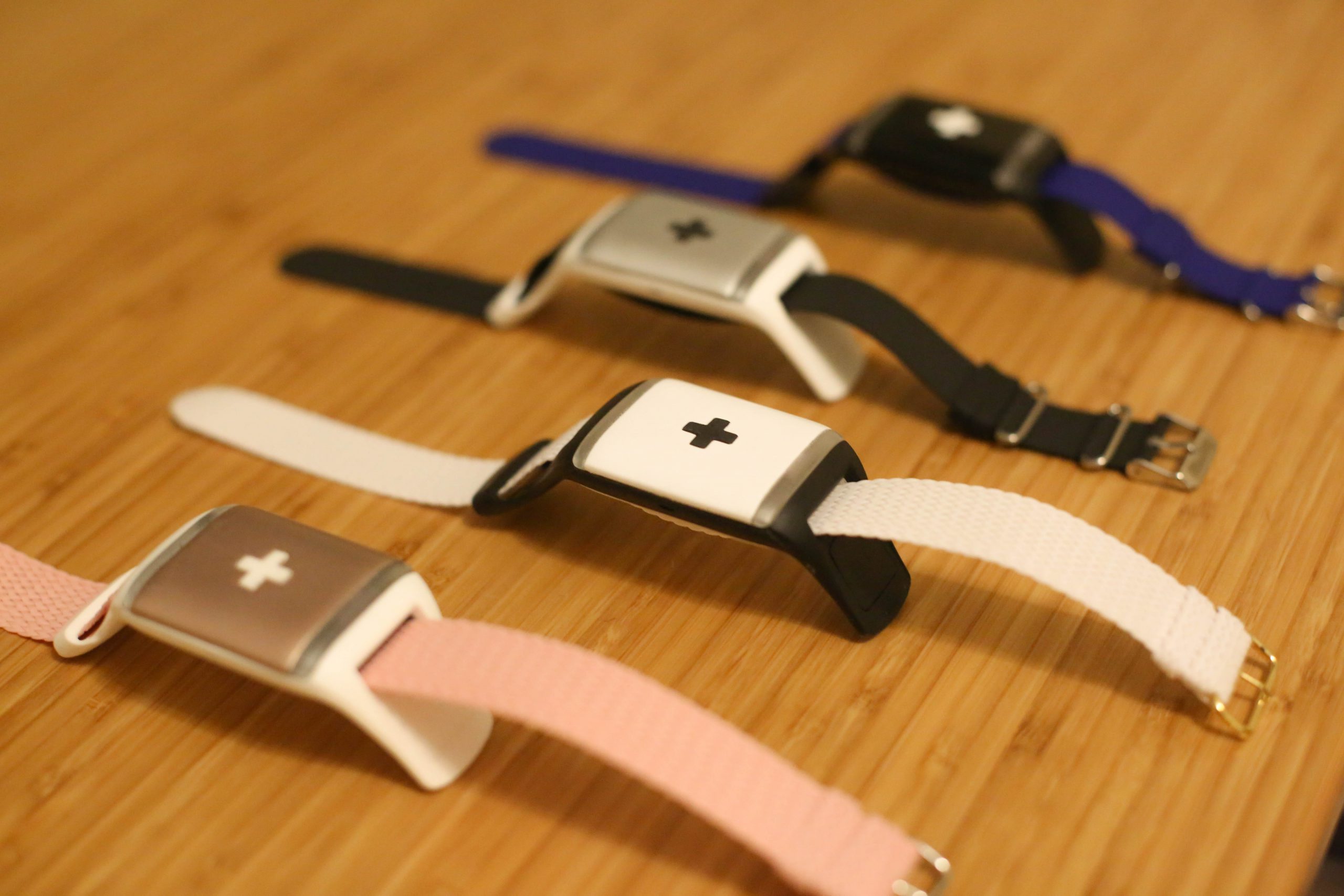Seniors with Dementia Testing Safety Bracelet
 The young entrepreneur expects to launch CareBand commercially by mid-summer.
The young entrepreneur expects to launch CareBand commercially by mid-summer.
Subscriber Benefit
As a subscriber you can listen to articles at work, in the car, or while you work out. Subscribe NowWearable technology invented by a recent Indiana University graduate is helping provide peace of mind for 15 families in Bloomington. CareBand is a high-tech device, but its mission is simple: protect seniors who have dementia or Alzheimer’s disease from wandering into danger. The safety bracelet monitors the wearer’s location and alerts family or a caregiver when the senior wanders outside a pre-determined safety zone. The Bloomington pilot study is the final step before founder and Chief Executive Officer Adam Sobol plans to launch CareBand and provide peace of mind to thousands of families.
CareBand, about the size of an Apple Watch, uses ioT technology to provide the real-time location—both indoors and outside—of the elderly person with dementia. If he or she wanders outside set parameters, the system automatically alerts a family member, caregiver or multiple people.
“[The device] is able to know where somebody is inside of their home or facility, all the way down to the room,” says Sobol. “And outside, up to about three miles, it knows where they are.”
The bracelet, which has a secure clasp and button the senior can press to call for help, interfaces with an app on the caregiver’s tablet or smartphone. The bracelet has a three-day battery life and is charged wirelessly by placing it on a mat for 30 minutes.
Sobol says the patented technology could be used by seniors living at home or in an assisted care facility or nursing home. CareBand is currently launching its second round of pilot studies to test about 50 units. The pilot in Bloomington involves 15 seniors who are living at home; two other studies are taking place at an assisted living facility and a nursing home, both near Chicago.
Amanda Mosier, a community health coordinator at IU Health’s Alzheimer’s Resource Service, is helping coordinate the Bloomington pilot. She’s been working with seniors who have dementia for nearly two decades and believes CareBand could help them remain independent longer.
“When somebody is unaware they’re at risk of leaving their home or maybe leave and don’t know where they’re going, they usually get placed in a facility sooner rather than later,” says Mosier. “But if they have this device, and they’re still living at home, family members are able to intervene more quickly or check on them. It could help them be independent a lot longer than they might have been otherwise due to safety reasons. Staying at home longer is always what most of us wish for.”
Conventional security measures inside assisted living or nursing home facilities include an alarm system that sounds when a door is opened “and everybody comes running,” says Mosier; it can frighten the senior and other residents, she says. She believes CareBand is a more subtle way to keep the elderly safe.
“It gives them independence to move around [a facility] and not have staff constantly saying, ‘No, no, you can’t do this, you can’t go here,’” says Mosier. “[Staff] can look on the monitor and see where the person is safe, and redirect them as needed, but not constantly be verbally intervening.”
Mosier notes, by tracking and recording the location of the senior, CareBand can also tell caretakers or loved ones where the person is spending most of their time—which activity areas, for example. Caretakers could notice changes in typical behavior, such as seniors isolating themselves in their rooms more or making repeated trips to the bathroom, which could indicate a urinary tract infection, a common problem for people with dementia or Alzheimer’s.
Sobol notes CareBand doesn’t rely on Wi-Fi or cellular technology, which he says is an important distinction.
“We’re using a new low-power wide-area network,” says Sobol. “This enables us to not have to rely on a facility’s or home’s Wi-Fi infrastructure. A lot of people don’t have Wi-Fi, and a lot of facilities or nursing homes don’t have sufficient Wi-Fi to put a safety device like this onto their network.”
The pilots will finish in about two months, at about the same time Sobol plans to close a fundraising round. CareBand will refine the system if needed and plans to launch mid-summer.
“There are so many people who could benefit from this product, have peace of mind and help their loved one stay safe and in the least-restrictive place possible, so they can live independently,” says Sobol. “This problem of dementia and wandering isn’t going away; it’s only increasing with more people. They need some type of solution.”
Sobol says there are three main goals for the pilot studies.
Sobol says showcasing CareBand at the recent Consumer Electronics Show was “an incredible experience.”
Mosier says CareBand has very practical benefits at an assisted living or nursing home facility.

